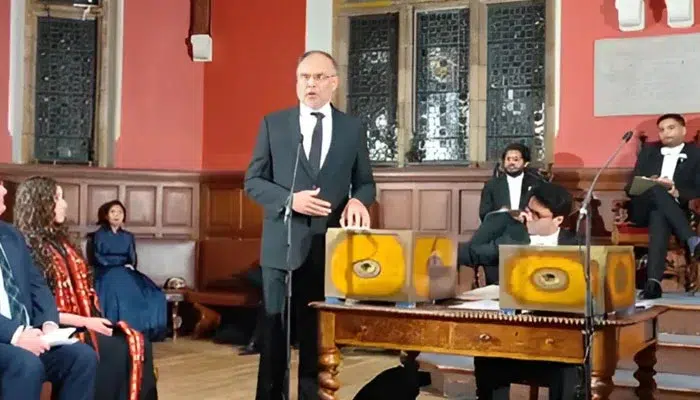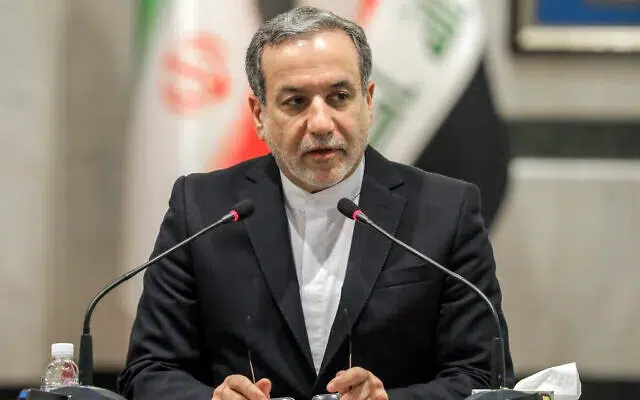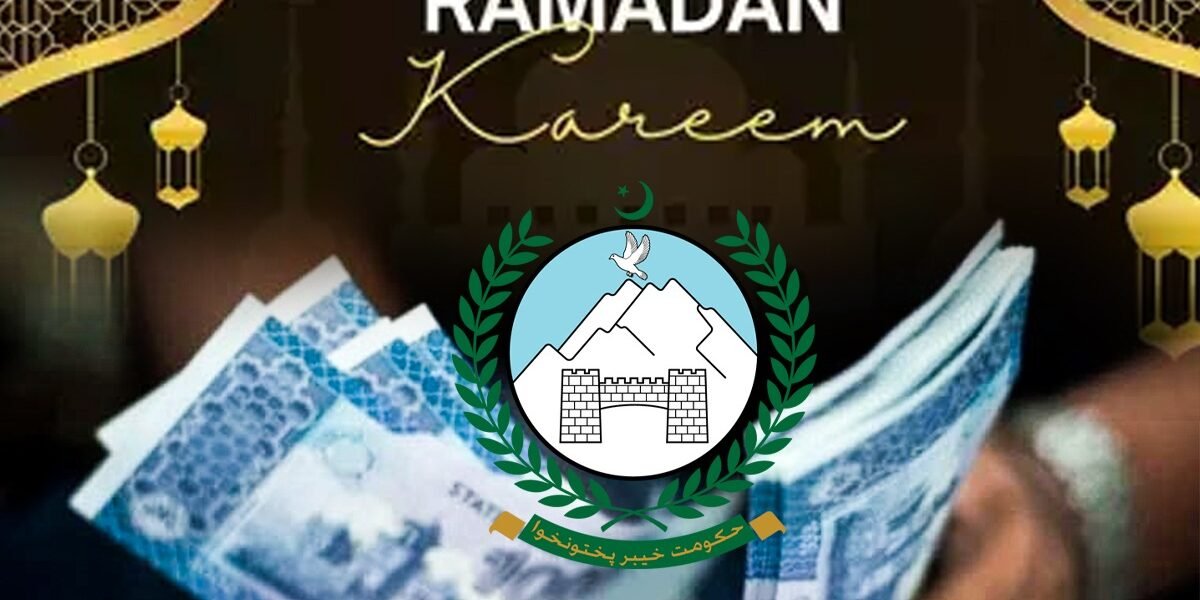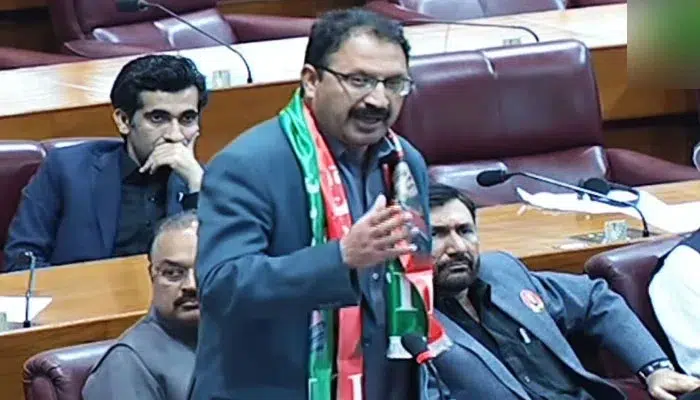ISLAMABAD: Pakistan’s Minister for Planning, Development and Special Initiatives, Professor Ahsan Iqbal, has secured a landslide victory in a historic dialogue at the Oxford Union.
Ahsan Iqbal successfully argued his case against the failure of liberal democracy in the global South, winning by 145 votes to 180.
At this prestigious forum, he made a strong case for the rights of developing nations and global justice.
The planning minister had the opportunity to participate in the dialogue at the invitation of Oxford Union President Israr Kakar, where he made it clear in his powerful speech. In his speech, he said that liberal democracy, which is presented as a golden dream of freedom, equality and progress, has in fact been the cause of injustice, poverty, political instability and economic misery for the global South.
He said the same nations that promote liberal democracy now suffer from extremism, hatred, and inequality.
Citing Kashmir and Palestine, he condemned global powers for ignoring human rights violations. He argued that true democracy would have granted these regions the right to self-determination. But the global powers that call themselves champions of human rights are silent spectators to the atrocities being committed against the oppressed people of Kashmir and Palestine.
He said that if liberal democracy were truly a system of justice, freedom and sovereignty, then today the people of Kashmir and Palestine would have been given the right to decide their future.
He accused the post-World War II global system of keeping the global South under Western control.
Referring to the collapse of the Soviet Union, he said that instead of freedom and progress, the world saw rising instability and economic decline. The reality of getting freedom and progress turned out to be the opposite. Powerful countries used debt and agreements to keep developing nations weak.
Political instability increased in the global South, economies declined and powerful countries trapped developing nations in a web of debts and agreements, pushing them further backward.
The Planning Minister, while strongly criticising the global financial system, cited Jason Heckle’s book The Divide, which revealed that for every dollar of aid, the global South loses $14 in debt repayments and profit transfers.
He pointed out that during the COVID-19 pandemic, some countries, in the name of liberal democracy, blocked vaccine patents for the global South, resulting in more than 1.3 million treatable deaths.
Ahsan Iqbal also spoke about environmental injustice, saying that developed countries are responsible for 80% of the world’s carbon emissions, but poor countries are bearing the brunt of its effects.
Pakistan, which contributes less than 1% to global carbon emissions, was hit by the worst floods in 2022, causing a loss of $30 billion, but the international community talked about debt restructuring instead of assistance.
The Planning Minister asserted that this is not democracy or justice, but a system of powerful countries that is further promoting the exploitative system in the world.
He said that today, even the countries considered to be the bastions of liberal democracy have fallen victim to severe political and economic crisis, instability and intolerance, which proves that this system has failed on its very foundations.
Ahsan Iqbal convinced the audience at the Oxford Union through his power of argument, historical references and ground-based discussions, which was evidenced by his victory by 145 votes against 180.
Achieving success at a forum like the Oxford Union, which has a tradition of academic and tough questions, is a big challenge for any world leader, but the Planning Minister achieved this success through his expertise, factual arguments and reasoned discussions, which is an important diplomatic and intellectual victory for Pakistan and the global south.
Ahsan Iqbal’s success has further cemented him as a global leader who is not only the most effective advocate for the rights of developing countries but also a powerful voice for real reforms in the global system.
Also Read: Imran Khan not a political prisoner, says Ahsan Iqbal
His address has sparked a new debate among global policymakers, research institutions, and intellectuals on how to establish a just economic, political, and environmental system in the world.
Through facts and reasoned arguments, Ahsan Iqbal convinced the Oxford Union audience. His victory is a major diplomatic and intellectual win for Pakistan and the global South.
His speech has sparked a global debate on reforms for a just economic, political, and environmental order.
















